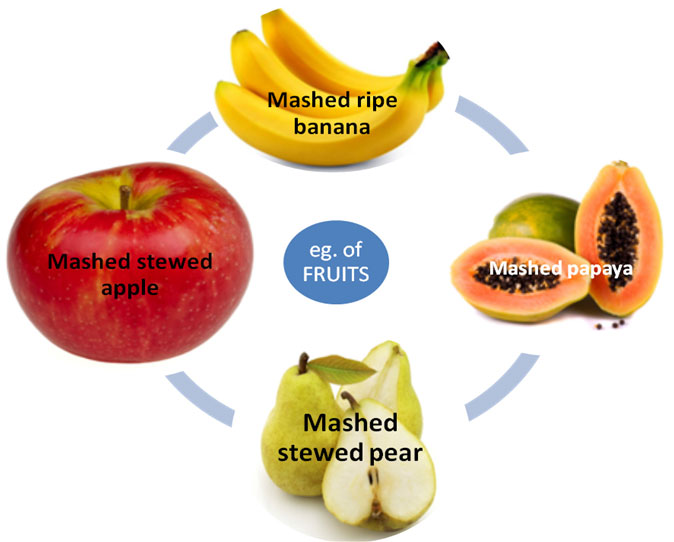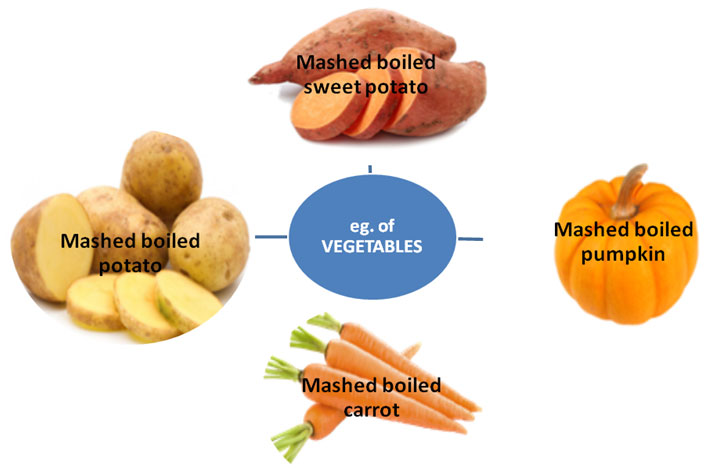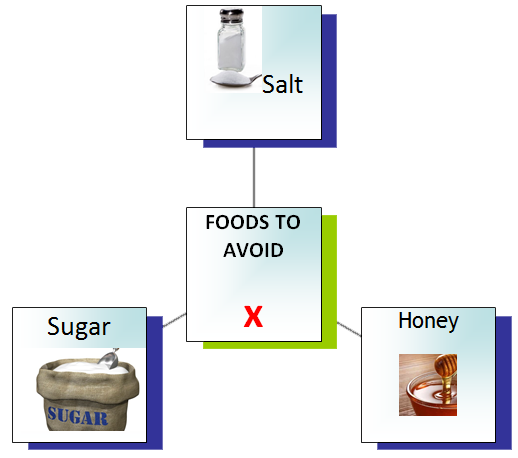|
What is weaning? Weaning is a process of gradually introducing a variety of solid foods into your baby’s diet while still continuing breast or infant formula milk. It is one of the important steps in the baby’s development. Weaning is also about getting your baby used to move solid food around his/her mouth. Do not worry if more food ends up on the floor than in his/her mouth at the beginning, as it is part of your baby’s learning curve
|
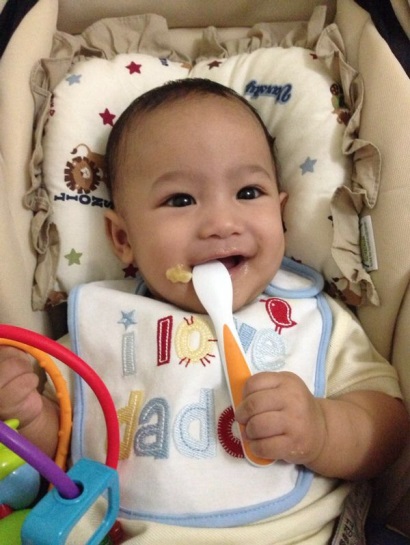 |
When should you wean your baby?
Weaning can be introduced when your baby:-
- Are able to sit up without support
- Begins picking up toys/things and put it in their mouth
- Showing signs of interest in food and trying to reach for food
- Reaches and grabs accurately
- Better eyes-hand-mouth coordination
- Demanding feeds more frequently
- Appears to be less satisfied after a feed
- Watching and staring at you when you are eating
As a rule of thumb, six months old is the best age to introduce solids. Weaning at the age of younger than six months may increase the risk of infections and allergies, due to under developed digestive system. If you feel your baby needs to start solid food before six months old, consult your doctor first.
How do you start your baby to wean?
Baby will learn to accept and enjoy new foods with a variety of flavours and textures. It is recommended to offer same foods on several occasions in order to ensure the baby will adjust to the new taste and/or texture.
- Ensure that the food is well-mashed before giving it to your baby
- Choose a suitable time of the day when your baby is awake and alert, and not easily distracted.
- Seat up your baby to avoid choking (photos)
- Start with just a few teaspoons of food, one meal a day
- Increase the amount gradually, according to your baby’s appetite
- Start with a very smooth consistency of puree or mashed solid foods, progressing to a thicker texture with soft lumps and also finger foods
- Allow your baby to feed him/herself using fingers
- Avoid forced feed – Signs that your baby has had enough:-
- Keeps mouth shut
- Pushes food or spoon away
- Turns his/her head away
- Keeps food in mouth and refuses to swallow
- Repeatedly spits out food
- Offer new foods multiple times. The baby’s initial rejection of a new food or taste may not be an indication of dislike. It may take longer to observe changes in facial expression
What are the common foods for weaning diet?
Offer a wide variety of foods as your baby’s weaning diet. These are some suggestions for first foods:-
- Mashed/ puréed fruit – ripe banana, apple/pear (stewed), papaya
- Well-mashed cooked vegetables – either stewing of steaming method (potato, carrot, pumpkin, sweet potato, cauliflower etc.)
- Cereal or baby rice mixed with your baby’s usual milk (breast or formula milk), at the right consistency
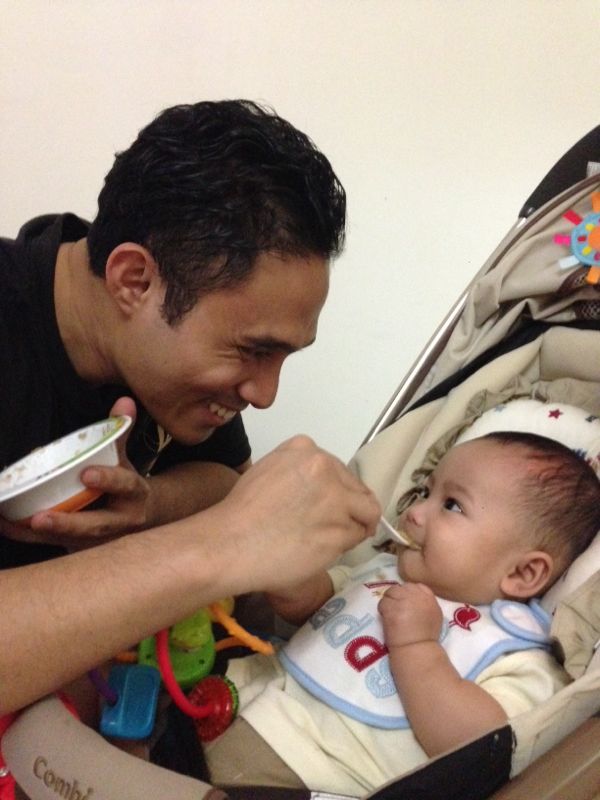 |
Foods to avoid? There are certain foods need to be avoided for your baby in order to have good oral and dental heath.
|
When do you start sippy cup / cup feeding?
Introduce a sippy cup or cup feeding at six months of age in preparation for weaning from the bottle or breast milk.
Tips and tricks:-
| Do not allow your baby to have a sippy cup full of juice or formula milk all day as it is bad for his/her dental health | |
| Avoid giving liquid from the sippy cup as his/her “main meal” as your baby needs other solid foods for the daily requirement. | |
| Introduce a sippy cup feeding when your baby is able to maintain a good tight grasp | |
| Demonstrate to your baby how to use the sippy cup infront of him/her | |
| Encourage your baby to hold the sippy cup with two hands |
Dental Health
The occurrence of dental caries is related to presence of sugars in the diet. It is best to avoid adding sugar in homemade weaning diet. Few tips to ensure good dental/oral health:-
- Avoid sugary drinks in bottle. Used sippy cup instead.
- Avoid fizzy drinks and commercial fruit juices. Well diluted pure fruit juice can be given at the same time as a meal.
- Reduce the amount of finger foods with high sugar content. Food and drinks containing sugar should be kept to a minimum.
- Never dip dummies in honey, sugar or syrup
References
- http://www.bradford.gov.uk/NR/rdonlyres/EA7CBD64-9F10-4408-B843-61B76481243C/0/6Nutritionguidelinesweaning.pdf
- http://www.nhs.uk/Livewell/Goodfood/Pages/salt.aspx
- Mennella JA, Nicklaus S, Jagolino AL, Yourshaw LM. Variety is the spice of life: Strategies for promoting fruit and vegetable acceptance during infancy. Physiol Behav 2008:94;29-38
| Last Reviewed | : | 19 June 2015 |
| Writer | : | Dr. Jama’iah bt. Mohd Sharif |
| Accreditor | : | Dr. Hjh. Noraini @ Nun Nahar bt. Yunus |


